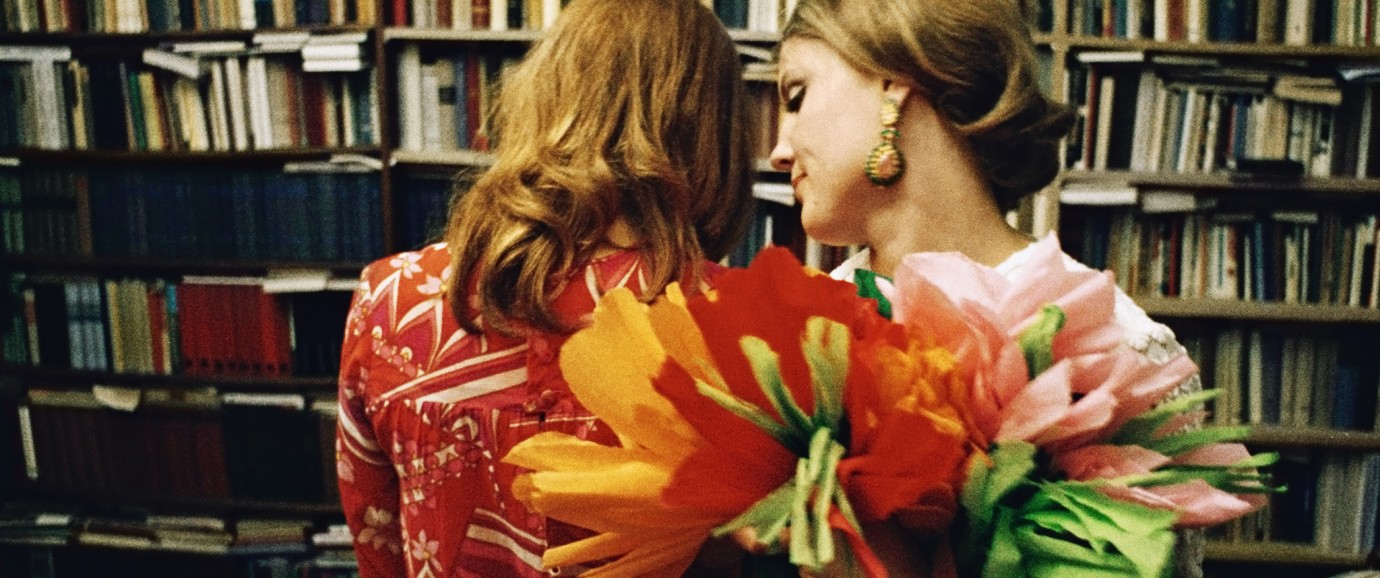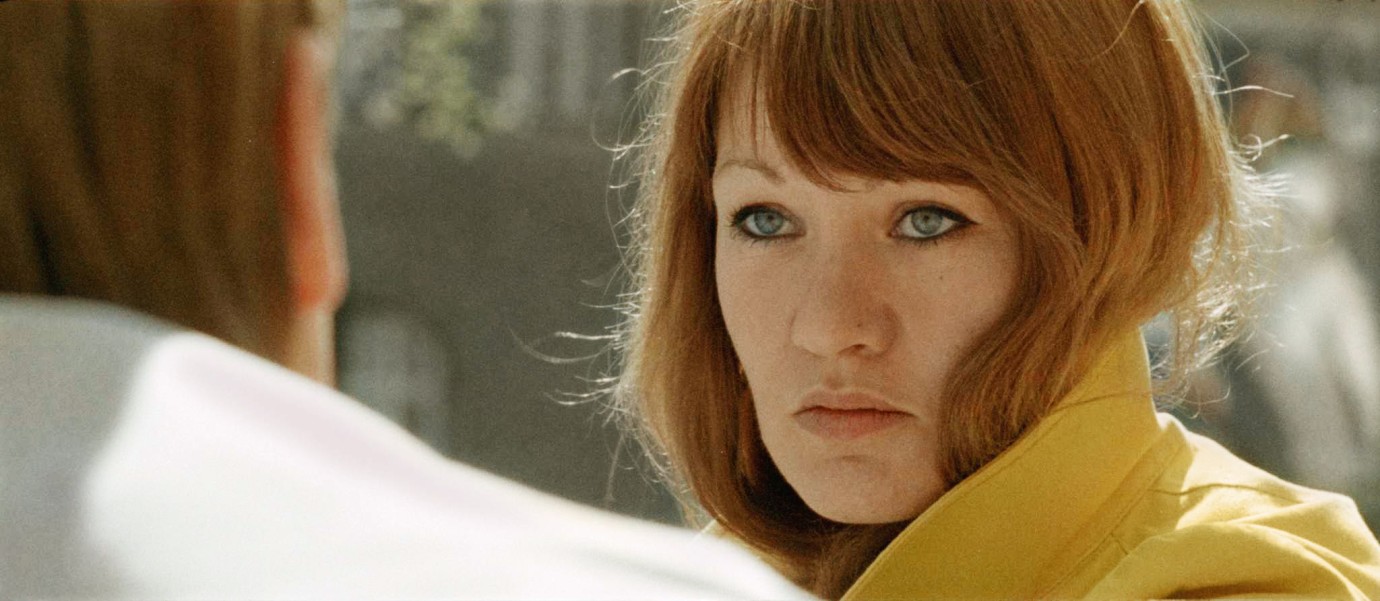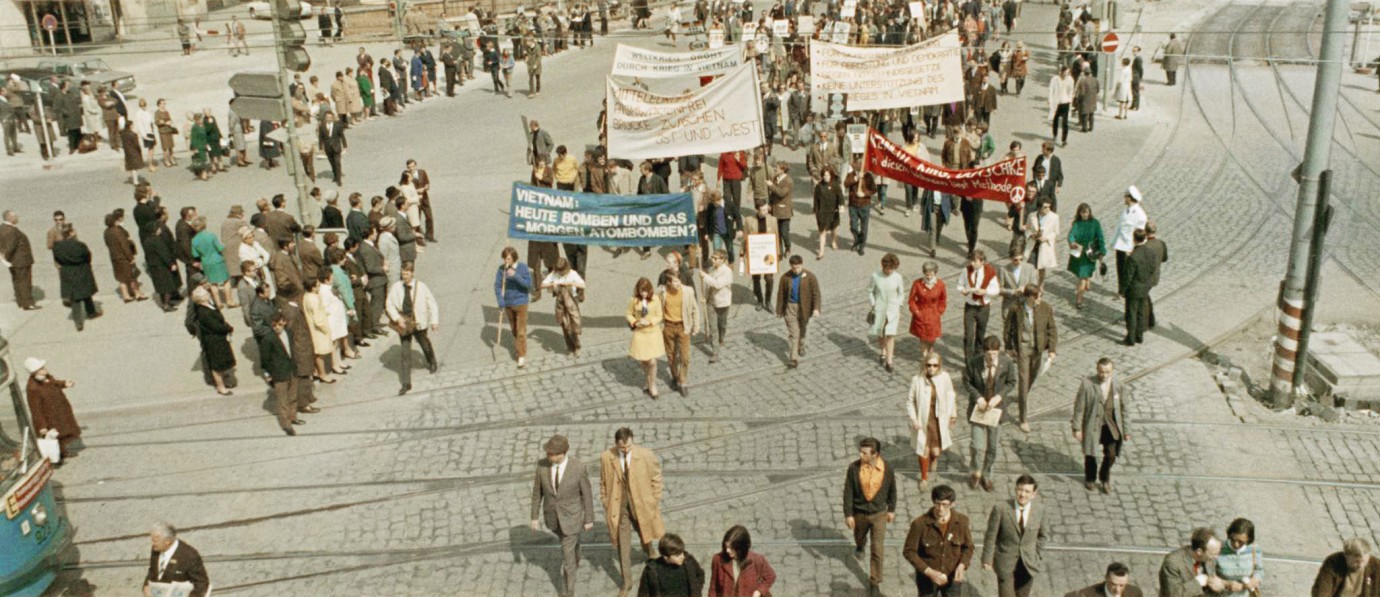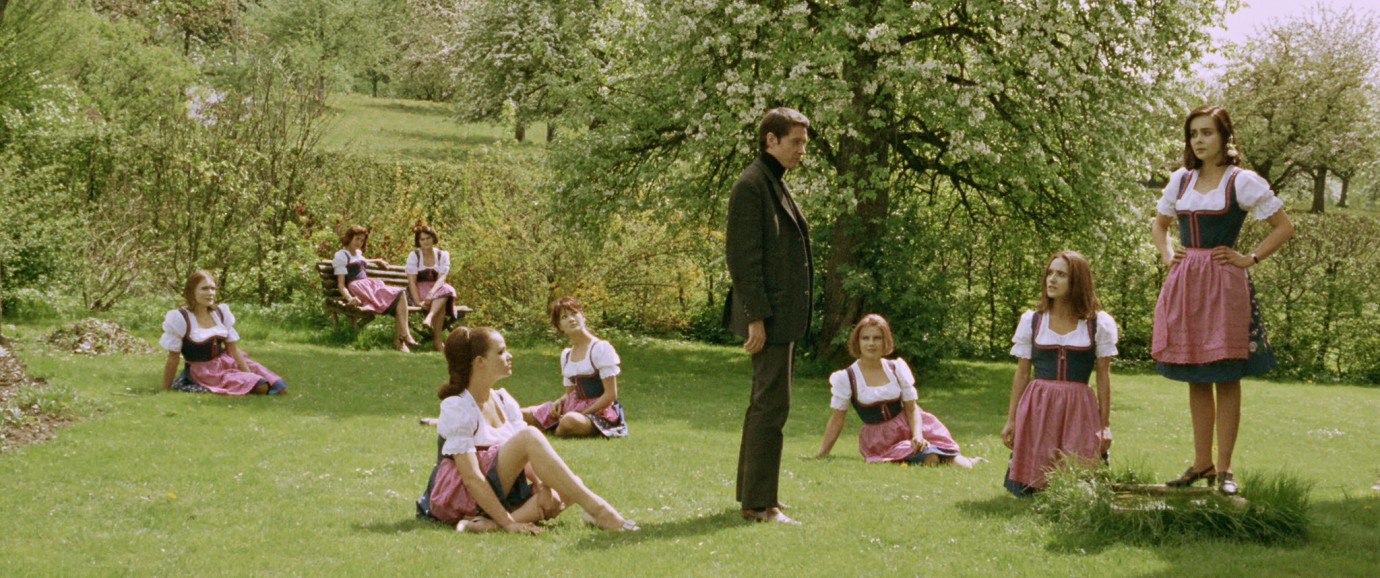Neun Leben hat die Katze
The Cat Has Nine Lives

Christine de Loup, Liane Hielscher
Neun Leben hat die Katze | The Cat Has Nine Lives by Ula Stöckl
BRD 1968, Retrospective
© Deutsche Kinemathek / Ula Stöckl

Christine de Loup
Neun Leben hat die Katze | The Cat Has Nine Lives by Ula Stöckl
BRD 1968, Retrospective
© Deutsche Kinemathek / Ula Stöckl

Christine de Loup
Neun Leben hat die Katze | The Cat Has Nine Lives by Ula Stöckl
BRD 1968, Retrospective
© Deutsche Kinemathek / Ula Stöckl

Neun Leben hat die Katze | The Cat Has Nine Lives by Ula Stöckl
BRD 1968, Retrospective
© Deutsche Kinemathek / Ula Stöckl

Jürgen Arndt
Neun Leben hat die Katze | The Cat Has Nine Lives by Ula Stöckl
BRD 1968, Retrospective
© Deutsche Kinemathek / Ula Stöckl
With
- Liane Hielscher
- Marie Philippine
- Jürgen Arndt
- Antje Ellermann
- Alexander Kaempfe
- Elke Kummer
- Hartmut Kirste
- Wolfgang von Ungern-Sternberg
- Heidi Stroh
Crew
| Written and Directed by | Ula Stöckl |
| Cinematography | Dietrich Lohmann |
| Editing | Wolfgang Schacht |
| Music | Bob Degen, Manfred Eicher, Fred Braceful |
Additional information
DCP: Deutsche Kinemathek, Berlin
Ula Stöckl
Born in Ulm, Germany in 1938, she studied languages in London and Paris. Afterwards she studied at the Institut für Filmgestaltung in Ulm. She has also directed television films and theatre. Ula Stöckl is an associate professor at the University of Central Florida in Orlando.
Filmography (selection)
1968 Neun Leben hat die Katze; 86 min., Retrospective 1977, Classics 2015 1972 Das goldene Ding; 90 min., Forum 1972, co-directed by Alf Brustellin, Nikos Perakis, Edgar Reitz 1974 Ein ganz perfektes Ehepaar; 90 min., Berlinale 1977 1976 Erikas Leidenschaften; 64 min., Forum 1977 1984 Der Schlaf der Vernunft; 82 min., Forum 1984 · Jakobs Tauben; Forum 1984, 45 min. 1991 Das alte Lied; 82 min., Forum 1992 2015 Die Widerständigen „also machen wir das weiter ...“; 87 Min., Panorama 2015, co-directed by Katrin Seybold
Bio- & filmography as of Berlinale 2019